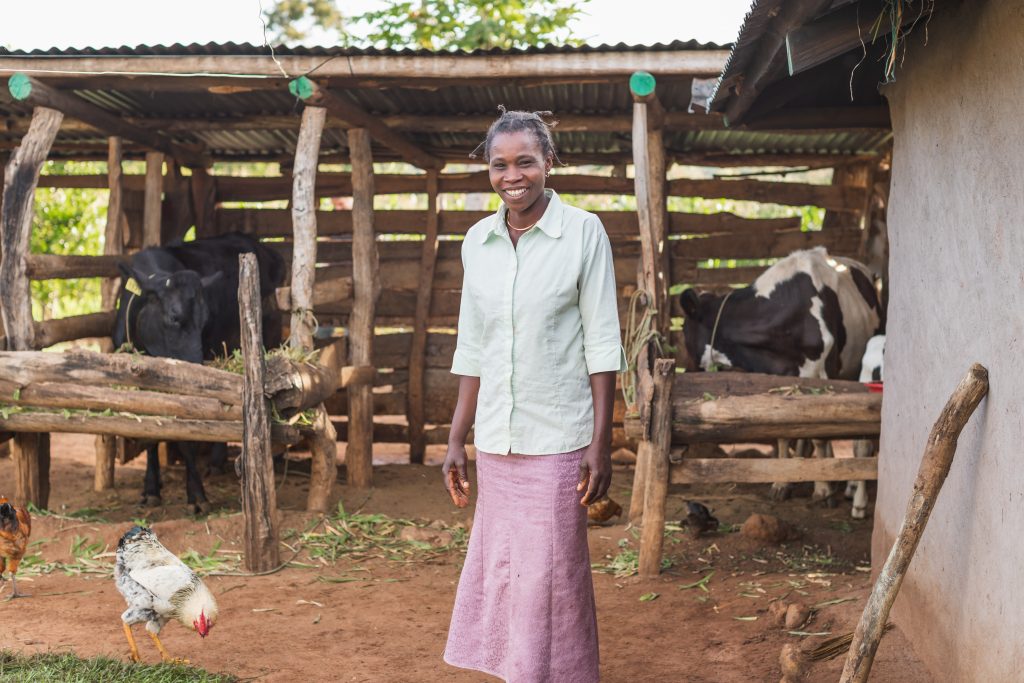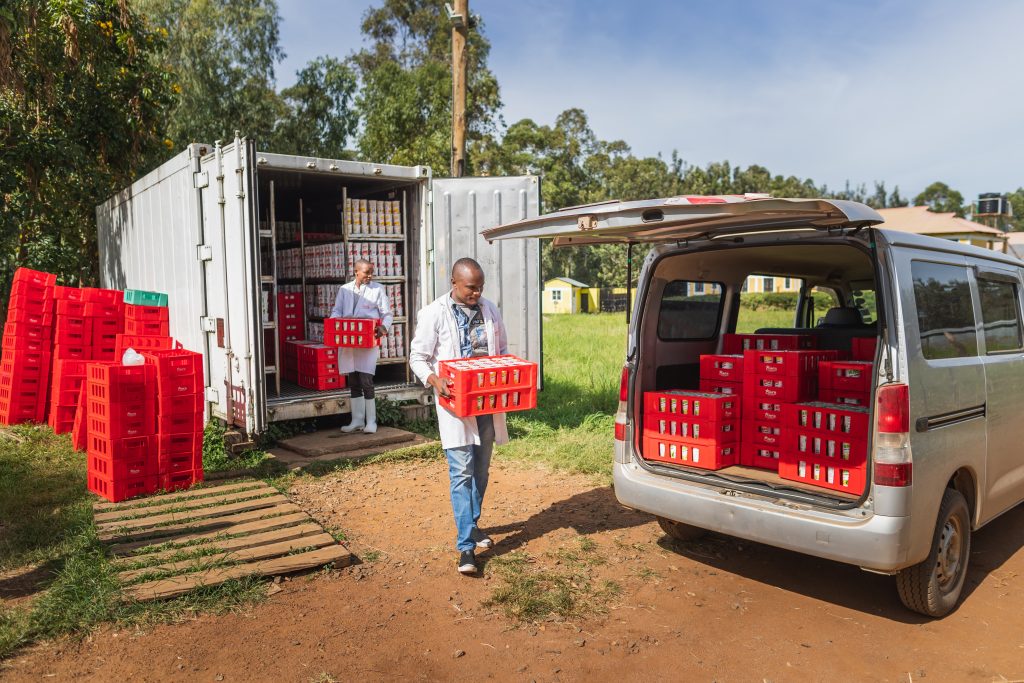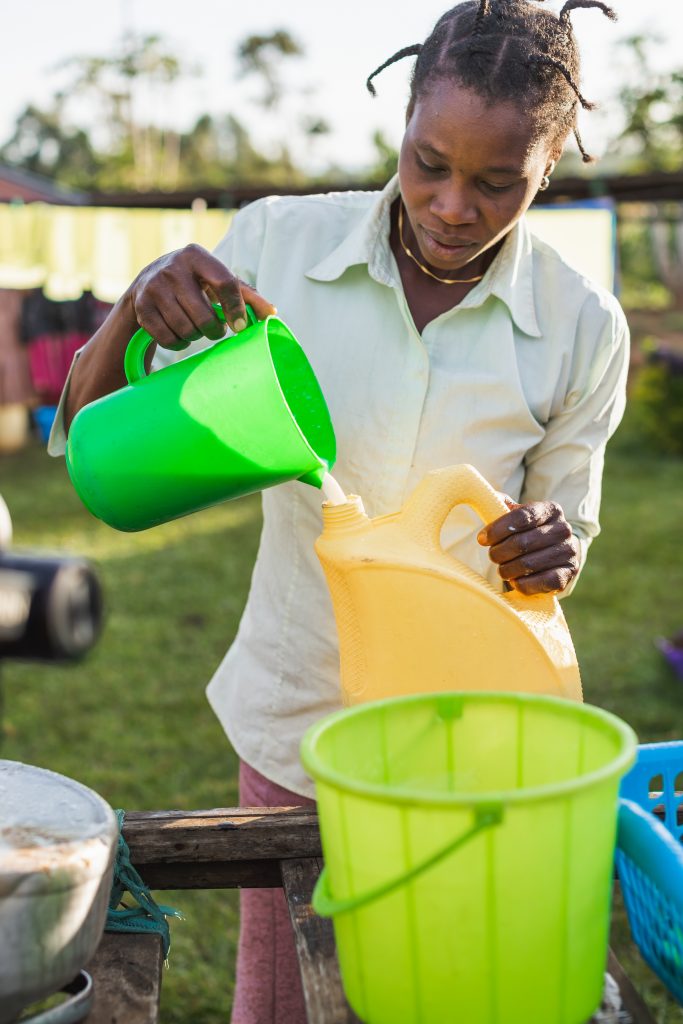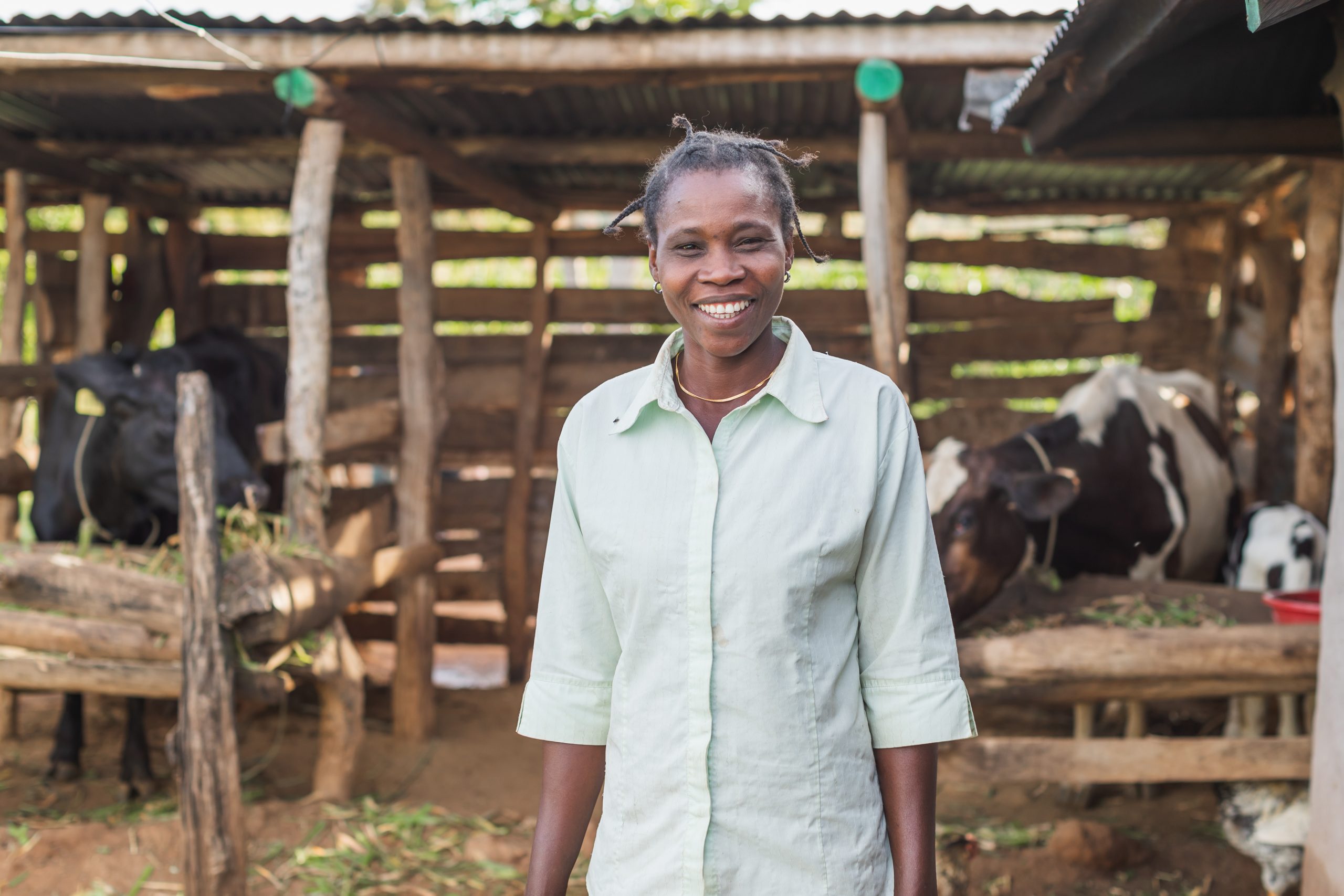In this final blog post for our Women’s Month series, we look at the way one woman farmer’s life has been positively impacted through Nuru’s gender-transformative approach that creates opportunities for women to share in household, community, and organizational decision-making.
Nuru Kenya Launches Dairy Program
In an effort to provide rural farmers with the opportunity to diversify their livelihoods and to further support local food systems, Nuru Kenya launched its dairy programming in 2017. This was the second of the livelihood diversification programs–a vital part of resilience-building for farmers–after diversified crops were introduced into program activities in 2015. Nuru Kenya supports 638 dairy farmers in 16 cooperatives. Through their farmer-led and farmer-owned cooperatives, Nuru dairy farmers have access to artificial insemination services for their cattle, tick control through weekly spraying and vaccination against deadly diseases, receive training on the construction of safe pens for calves, and farmers learn about fodder conservation in the form of hay and silage.

Mary Joel stands in front of a section of her farm
Mary Joel, a Nuru Kenya farmer, and her husband have been members of the Ikerege Farmers’ Cooperative Society members since 2016. They joined the dairy program in 2018 when they accessed a heifer from Ikerege Cooperative through a heifer loan. Mary says, “The cow has calved down, it’s being milked, and the milk is being sold to the cooperative and some to the school where our children are learning. We have also received training and guidance through the cooperative in collaboration with Nuru Kenya. The training on dairy management practices and the artificial insemination program has really helped us improve our milk production. Furthermore, the cooperative started aggregating milk, and we were among the first people to aggregate and sell through the cooperative.” Mary goes on to add that “the crossbred cow produced a high volume of milk compared with the indigenous ones, [and] this has enabled us to get more money from the milk sales, enabling us to pay for school fees for our children.”
Nuru Social Enterprises Aggregates Milk
Nuru Kenya Social Enterprises (NKSE) ensures that dairy farmers have a consistent purchaser for their milk production. The milk is aggregated from Nuru dairy farmers, and then processed into yogurt and lala. On average, NKSE is aggregating 14,000 liters of milk and distributing to five regions in Kenya each month.

Nuru Social Enterprises prepares for a distribution day by packing up Nuru Yogurt
Through Ikerege Cooperative, Mary and her husband have not only participated in the dairy programming, but they have access to quality services and inputs, and they have received financial literacy training while growing their skills in Good Agricultural Practices (GAP). Mary and other farmers receive training on regenerative agricultural practices that not only equip farmers to increase their crop yields, but help restore the soil and ensure the long-term sustainability of their farming businesses. For Mary, the impact of farming with Nuru was immediately noticeable, as she and her husband had a bumper crop the first year they began implementing the training they received through Ikerege.
Farming – An Act of Perseverance
However, being a rural woman farmer is not without its challenges. Mary explains, “Women face numerous challenges, but the one challenge that I have faced is the issue of leasing land. When you lease land from a community member and they realize that you have had a bumper harvest, the next season, they don’t allow you to continue with the lease. They wait for you to prepare the land, and then they chase you out of the land. This is something that discourages many women because most of them do not own land.”
Despite the hardships she has faced, Mary has demonstrated her willingness to persevere and has tangibly cultivated her own resilience and that of her household. She is not only able to pay for her children’s school fees, but she has been able to start her own business. She says that these accomplishments in particular bring her a sense of pride. Mary goes on to say, “I feel empowered as I am able to manage the household expenses.” When asked what advice she would share with a younger woman farmer, Mary says, “I would encourage her to join a savings group and also join a cooperative. Moreso, I would want to train her on issues of savings and how she can manage the household well.”

Mary Joel processes milk
By building the capacity of farmers like Mary through farmer cooperatives, Nuru is strengthening local food systems and supporting resilience at the household level while elevating the role of women in their homes and their local communities. Nuru’s gender transformative approach magnifies the voices of those who are best positioned to drive sustainable change in the fight to end extreme poverty and cultivate lasting meaningful choices.
Did you miss the first two blog posts in this series? Hear from three creative, brilliant, and world-changing women of Nuru who share about how they #BreakTheBias every day as women in leadership here. Learn more about our gender-transformative approach here.


